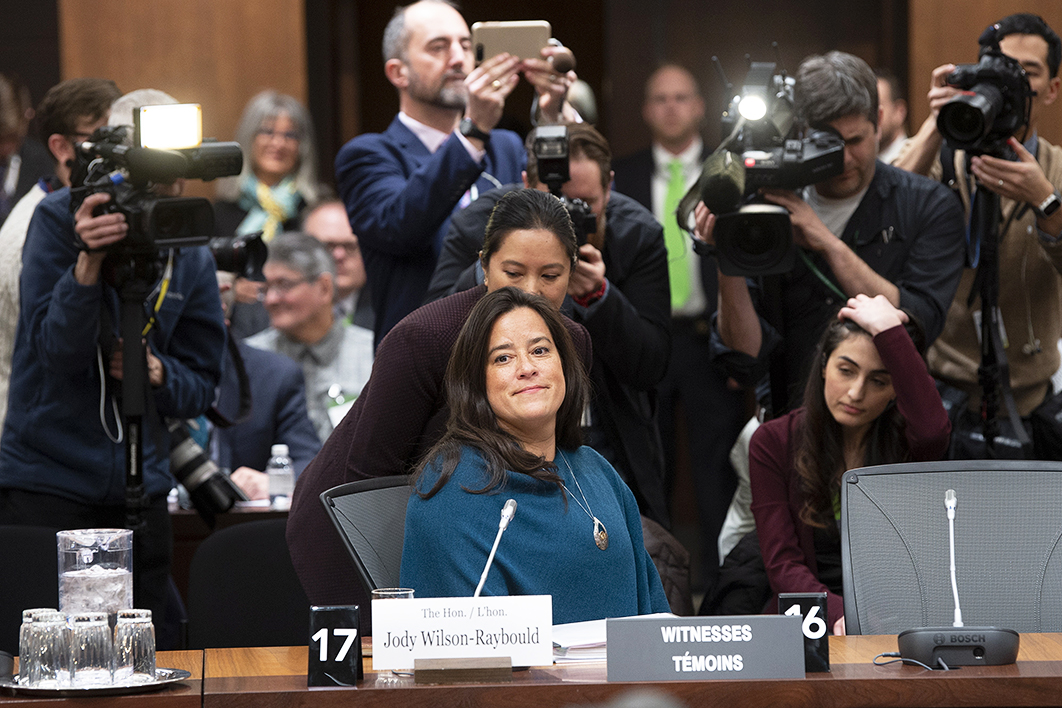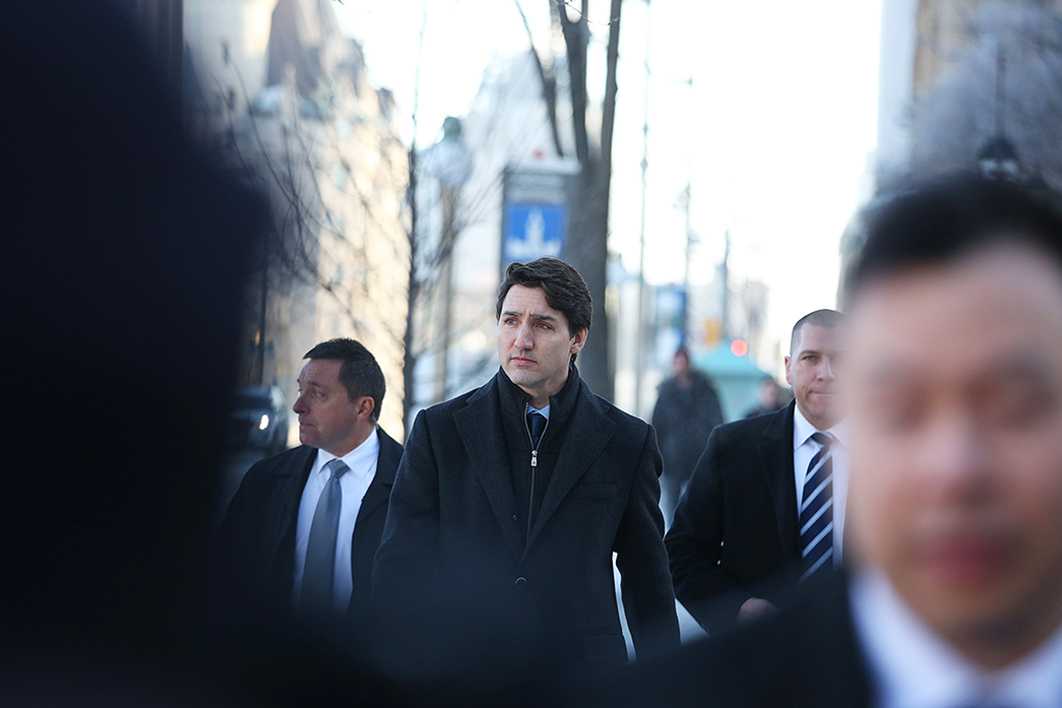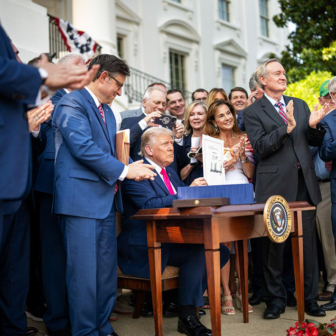For weeks, Canadian politics has been consumed by a controversy that has no exact name. Internationally, it’s being called “a corruption scandal,” and within Canada it’s typically “the SNC-Lavalin affair,” but neither tag quite captures what is easily the most serious problem faced by Justin Trudeau’s government since it took office in 2015. The story is multidimensional, but a neat summary would run like this: with an election due in October, Canada’s celebrated prime minister has gone seriously off-brand.
First, the salient facts. SNC-Lavalin is a Montreal-based engineering firm that designs and builds complex projects around the globe. Recent years have brought revelations that the company engaged in bribery and other corrupt behaviour, particularly involving payments of nearly C$48 million to Libyan government officials between 2001 and 2011. The company was charged under Canadian law in 2015 and, if convicted, faced a possible decade-long exclusion from government contracts.
Naturally enough, SNC-Lavalin preferred the alternative, a deferred prosecution agreement, or DPA — essentially a plea bargain — and lobbied heavily for it during 2018. In October, though, prosecutors formally advised the company that the matter did not meet the criteria for a DPA, and the attorney-general and justice minister, Jody Wilson-Raybould, a former Indigenous leader, supported the decision.
As has now been well documented, the prime minister’s office, including Trudeau himself, repeatedly pressured Wilson-Raybould and her legal team to allow the DPA to proceed on economic grounds. Full prosecution would so devastate the company, it argued, that it might leave Canada, with the loss of a supposed 9000 jobs, mainly in Quebec. Wilson-Raybould was subjected to intense and sustained pressure out of public view.
In January, Trudeau shuffled several of his ministers to replace a retiring minister. Immediately noteworthy was Wilson-Raybould’s move from the prestigious justice portfolio to the obscure post of veterans’ affairs. She had weathered some heavy issues as justice minister but was still generally seen as a star performer in the Trudeau cabinet, and the demotion had no obvious explanation.
A few weeks later, on 8 February, the story of the pressure for the DPA broke in the national news, and the storm began. Wilson-Raybould resigned from cabinet four days later, and while she said little about the matter, citing solicitor–client privilege, she refrained from praising the prime minister, as is customary in resignation letters of this kind. Also unusually, she noted that she had retained a former Supreme Court justice as counsel.
Legal experts roundly condemned the apparent infringement of prosecutorial independence by the prime minister’s office. The ethics commissioner, responding to a request by the opposition New Democrats, launched an investigation. The press coverage quickly grew to the point that Trudeau’s principal secretary, Gerald Butts, announced his resignation. Butts was one of the prime minister’s two most powerful aides (along with chief of staff Katie Telford) and his long friendship with Trudeau goes back to university days. His departure on 18 February was stunning and unexpected; while he had been implicated in the pressure on the minister, he had not been singled out in the coverage of the affair.

Doing politics differently: Canada’s former attorney-general and justice minister Jody Wilson-Raybould at a hearing of the justice committee in Ottawa on 27 February. Adrian Wyld/The Canadian Press via AP
Wilson-Raybould continued to be circumspect. In another oddity, though, she asked for an opportunity to speak to her cabinet colleagues, which she did behind closed doors on 19 February. The government then passed an order partially lifting solicitor–client privilege, allowing her to testify before parliament’s justice committee on 27 February. There, she presented damning evidence of repeated messages and pressure from the prime minister, Butts, other prime ministerial aides, and the cabinet secretary and public service head, Michael Wernick. Yes, pressure had been put on the minister, Wernick testified on 21 February, but it was “entirely appropriate, lawful [and] legal.”
Until then, it was unclear how much the affair had caught fire outside Ottawa legal and political circles. Wilson-Raybould’s testimony was pivotal in transforming the story into a question of the personal integrity of an Indigenous woman speaking truth to power. The prime minister responded to her testimony by acknowledging the interventions by his office but denying they were inappropriate, a line of argument repeated by Butts when he told the committee on 6 March that “two people can experience the same event differently.”
Butts also denied that Wilson-Raybould’s January cabinet demotion had anything to do with SNC-Lavalin. She was first asked to move to Indigenous Services, he said, despite the fact that this is a difficult portfolio for an Indigenous minister, given its essentially colonial function. When she turned it down, he said, she was demoted for defying the prime minister’s request. The apparent failure of the prime minister’s office to grasp the Indigenous sensitivities involved hasn’t helped it make its larger case about the SNC-Lavalin DPA.
A further blow for the government had already come on 4 March when another minister — Jane Philpott, highly respected for both her competence and her moral compass — stepped down from cabinet, saying she had lost confidence in how the government had dealt with the matter. A third Liberal female MP announced she would not run in the next election, adding that the prime minister had yelled at her when she told him her plans.
While nearly all other Liberal MPs expressed pro forma confidence in the prime minister or stayed silent, it was clear that Trudeau had a serious problem. A prime minister who had appointed a gender-balanced cabinet in 2015 and had long been admired for progressive values and policies was suddenly looking much less virtuous. And while Trudeau again expressed regret about these events on 7 March, he avoided making an outright apology or expressing regret for his or his office’s actions.
That, in summary, is the story so far, and it’s best understood through three lenses: legal, political and gendered.
From a legal perspective, Wilson-Raybould’s stance has largely been upheld. Commentators have canvassed the difficulty of combining the justice and attorney-general portfolios in a single position and generally agree on the lack of grounds for a DPA. While few suggest that the prime minister’s office broke any laws by pressing for a DPA, there is broad agreement that the seemingly relentless pressure on Wilson-Raybould was inappropriate. But these largely abstract questions have attracted limited public attention.
Politically, the most explosive aspect is SNC-Lavalin’s location in Montreal. Regional tensions are never far from the surface in Canadian politics, especially if they involve Quebec. Indeed, the prime minister’s actions on behalf of the company were supported, at least initially, by significant elements of the Quebec media and some political figures there. Meanwhile, western Canadians, especially those frustrated at the lack of progress on energy pipelines, criticised the willingness of the government to go to such lengths for “Quebec jobs.” The prime minister didn’t help matters by reminding Wilson-Raybould that he himself is a Montreal MP.
More generally, the exposure of the extent of SNC-Lavalin’s lobbying at the highest levels has been embarrassing for a government that promised transparency, integrity and, in a phrase from an earlier Liberal prime minister, Wilfrid Laurier, “sunny ways.” With the chief financial officer of Huawei detained in Vancouver under an extradition request from the United States, the story also has an inconvenient Chinese angle. Canada has long said it had no option but to comply with the US request, but Chinese media have been quick to ask whether the attempted SNC-Lavalin deal shows that Canadian law is more flexible than the government claims.
More broadly, the unwelcome international focus on “corruption” in the Trudeau government — including an expression of concern from the OECD — has been an embarrassing reversal after three years of global fawning over Canada’s celebrity prime minister.
But the most damaging aspect of the affair is gendered. The spectre of a largely male group weighing heavily on Wilson-Raybould and her legal team (though Trudeau’s other top aide, Katie Telford, also lobbied for SNC-Lavalin) is stark and troubling. The prime minister and his aides look either hypocritical or clueless in repeatedly badgering Wilson-Raybould and her senior legal officials, many of them also women, and came dangerously close to outright sexism by suggesting the actions of the prime minister’s office were simply misunderstood.
A few Liberal MPs and party operatives added to the perception by suggesting Wilson-Raybould was not a “team player” or “couldn’t handle the stress” — phrases widely interpreted as gendered code words. “I think there’s somebody else behind — maybe her father [a prominent Indigenous leader] — pulling the strings,” said one Liberal MP, and it was widely noted when Trudeau referred to Wilson-Raybould only by her first name during a press conference.
In contrast, Wilson-Raybould and her former cabinet colleague Philpott have been impressive and measured in their public responses. Four days after her resignation, Philpott took time on 8 March, International Women’s Day, to praise the PM for his gender-balanced cabinet. Both remain in the Liberal party room and on 11 March Wilson-Raybould was confirmed by her constituency association as the Liberal candidate in this October’s election. Neither seems inclined to leave the party, cross the floor or start her own party — all options commonly followed by disgruntled male ministers. The applause for two women who appear indeed to be doing politics differently has been matched by disgust at the seeming continuity between the Trudeau team and the PM’s office during earlier eras.
Indigenous reaction to the affair has also been critical of Trudeau. Already accustomed to a complex and often disappointing relationship with the government, though, Indigenous leaders have displayed less shock, and little new feeling of betrayal, at the PM’s actions.
Trudeau can probably weather the abstract legal discussions, inconvenient political dimensions, and the international embarrassment. But the gendered aspects strike at the heart of his moral authority, and it is often off-brand behaviour like this that makes a scandal a scandal.
To call this a “corruption scandal” misses the main point; while it was precipitated by SNC-Lavalin’s corrupt actions, there is no hint of anyone in government lining his or her own pockets. Indeed, Trudeau and his team can plausibly — though not especially convincingly — justify their actions as serving the public interest by preserving 9000 jobs (though many have questioned that figure and the company’s claim it would be driven out of Canada). The prime minister’s lack of an outright mea culpa suggests he continues to believe he did the right thing, and this might allow him to outlast the legal and political dimensions.
It is also unclear what damage has actually been done, even in terms of gender. For the past year the Liberals and Conservatives have duelled for first place in the polls; the Liberals have dipped slightly since the affair broke but are by no means in freefall. The opposition parties have not picked up any serious momentum despite being handed an issue that seems to keep on giving. Conservative leader Andrew Scheer’s attacks have been haphazard and imprecise, and his party does not have the credibility to outflank Trudeau, even now, on gender issues.
Nor has the opposition had any help from Wilson-Raybould’s muted statements. Consequently its attacks, like the media scrutiny, have ranged widely through the legal, political and gendered dimensions of the affair, dissipating their impact. And while Liberals may be privately unhappy, no party figure is remotely positioned to challenge Trudeau’s leadership — even if a challenge were possible, which it is not under party rules. He remains the party’s best, if tarnished, asset.
More is to come, especially with the ethics commissioner’s investigation not likely to report for many months. But the Liberal Party appears ready to hunker down and ride out the affair. Parliamentary committee proceedings returned to more traditional partisan patterns after the dramatic testimony of Wilson-Raybould, Butts and others, with Liberal MPs on the justice committee now resisting attempts to continue probing the affair any further. Presentation of the federal budget this week gave the government a chance to take back the agenda and fill it with new items. And while public service head Wernick has announced his retirement after his dramatic and candid testimony, this and other developments are unlikely to have any significant wider impact.
How the affair will affect the October general election remains to be seen. Gerald Butts was a leading architect of the Liberals’ stunning comeback in 2015, and it’s hard to say how the party’s election planning will have been affected. Now a private citizen, Butts may actually be freer to engage in full-time political work, but his status remains unclear and a cloud hangs over a resignation that has never been fully explained.
While the Liberals have not dropped dramatically in the polls, voters might be feeling more ambivalent about Justin Trudeau. Voter turnout is crucial in Canada’s non-mandatory voting system, and a surge of enthusiastic new and young voters was key to Trudeau’s 2015 victory. This may work against him and his party if now-disillusioned voters stay home, giving an advantage to the opposition parties despite the limited growth in their own support base.
At this point it’s worth recalling that Justin Trudeau’s father also ended his first term in office on a disappointing note. Pierre Trudeau had swept to power in 1968 in a phenomenon dubbed “Trudeaumania.” But four years later the charm had worn off, the government was bogged down in the messy realities of power with limited results, and the party barely clung to power in the 1972 election, winning only two seats more than the Conservatives. A chastened Pierre Trudeau learned from this, becoming the more focused and realistic leader who eventually introduced historic constitutional reforms in the early 1980s.
Both father and son cultivated a charismatic image of rising above the grubbiness of partisan politics. And yet, as history records in the case of Pierre and the SNC-Lavalin affair shows in the case of Justin, the Trudeaus also have a steely underlying opportunism. This affair, whatever it is named, has been embarrassing for Justin Trudeau and distracting for his party. But it is unlikely to be fatal, and it’s to be hoped it taught this champion of gender equality something about the impact of his own actions. There may still be much to come for the slightly tarnished but still remarkable Trudeau brand.




